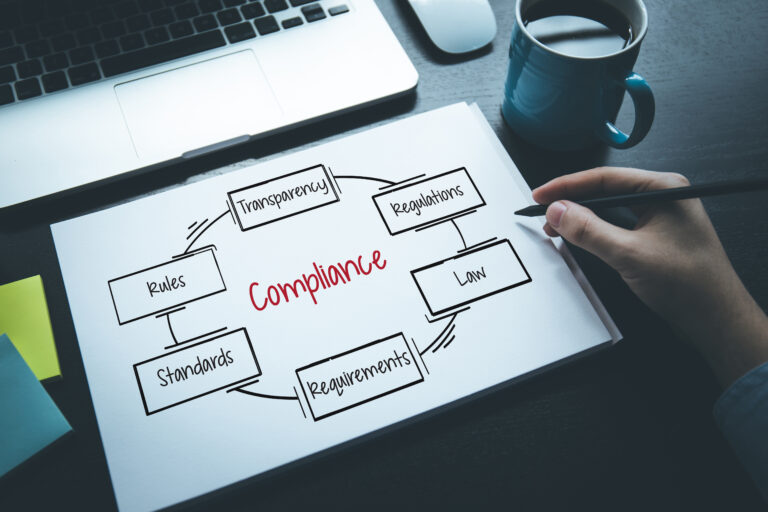
The new year represents a symbolic fresh start for many, but several concerns linger for technology companies around the globe. Some of the biggest names in tech are experiencing increased scrutiny, restrictions (or the threat of restrictions), and more apprehension about security than ever before. As a new presidential administration takes office in the United States, what issues are top of mind for the tech sector in 2021?
The Top Tech Issue: USA vs. China
Longtime foes in a battle for worldwide economic supremacy, the United States and China are set to continue an adversarial relationship between their respective governments and tech industries. The Wall Street Journal reports the Biden administration will not be making an about face from Trump administration policies against Chinese companies. Instead, “the Biden administration wants to keep some aspects of Trump policies that are useful, and they want to de-emphasize ones that seem emotional and punitive,” James Mulvenon, an expert on China at SOS International, told the publication.
Previous policies focused on several companies, including Huawei and TikTok. The Trump administration, cognizant of the potential to carve out an American foothold in the rollout of 5G technology, led a crusade against Chinese telecom giant Huawei throughout their four years in office. Trump threatened to sign an executive order banning US companies from using Huawei equipment in their networks, and his administration asked American allies in Europe and elsewhere to do the same (with varying degrees of success). Among the allegations: using Huawei equipment would create a security vulnerability that, in the age of cyberwarfare, would have massive security implications.
TikTok also found itself drawing the ire of US politicians and tech figureheads alike for security reasons. An executive order in August 2020, prompted by security concerns, forced TikTok to sell its US operations, leading to a competition between Microsoft and Oracle. Then, in December, the Trump Administration delayed a previously-discussed ban on the app, owned by Chinese company ByteDance. A resolution is currently unclear, but with the Biden administration set to “[maintain] the status quo… [to] let US officials figure out how to spur America’s tech industry,” it stands to reason that the ongoing clash between America and China will continue in 2021 and beyond.
Hacks and Data Security
The age of cyberwarfare is upon us, and with consumers becoming increasingly aware of data security concerns, concern about hacking is higher than ever. Government is far from immune: the most recent flashpoint is the discovery of the true scope of the Russian hack of multiple US federal agencies, including “the Centers for Disease Control and Prevention, the State Department, the Justice Department, parts of the Pentagon and a number of utility companies.”
As the US government – who was alerted to the situation by private industry – sifts through the damage, it is clear something needs to change in 2021 and the future. Some experts say the issue is simple: the government needs more funds to update its computer infrastructure. But it’s not only federal agencies dealing with security concerns. In a work-from-home world, companies and their employees are more prominent targets than ever. Vital software like Zoom has had to address data security issues, from “Zoombombings” – hijacking Zoom calls by outside parties – to reports a that revealed Zoom’s iOS app “was sending user analytics data to Facebook, even for Zoom users who did not have a Facebook account.” While video conferencing services rose to the challenge, threats to data security remain ever present – and require ongoing vigilance.
Push-Pull: Antitrust Scrutiny vs. Burgeoning Growth
The COVID-19 pandemic may have been marked by several economic downturns, but its effects were far from universal. Companies like the previously mentioned Zoom, streaming services like Netflix, and online retail giant Amazon all experienced growth and increases to the bottom line. But success – especially for giants like Apple, Google, Amazon, and others whose business models extend beyond a single sector – is coming with harsher scrutiny. Google finds itself contending with not one, not two, but three separate antitrust lawsuits; meanwhile, the tail end of 2020 also saw the Federal Trade Commission and 46 state attorneys bring an antitrust suit against Facebook, while Apple shifted its policy regarding commissions on smaller developers in its App Store in what appeared to be in response to the Supreme Court-approved antitrust suit they have been fighting for years.
While reasons vary, US lawmakers from both sides of the aisle have expressed skepticism of Big Tech. Legislation could follow; whether this will “strengthen existing antitrust laws,” as some suggest, relate to “new privacy rules and tighter liability standards,” or something new and unexpected is unknown. The giants of the technology sector keep growing, but a regulatory free pass is a thing of the past.







